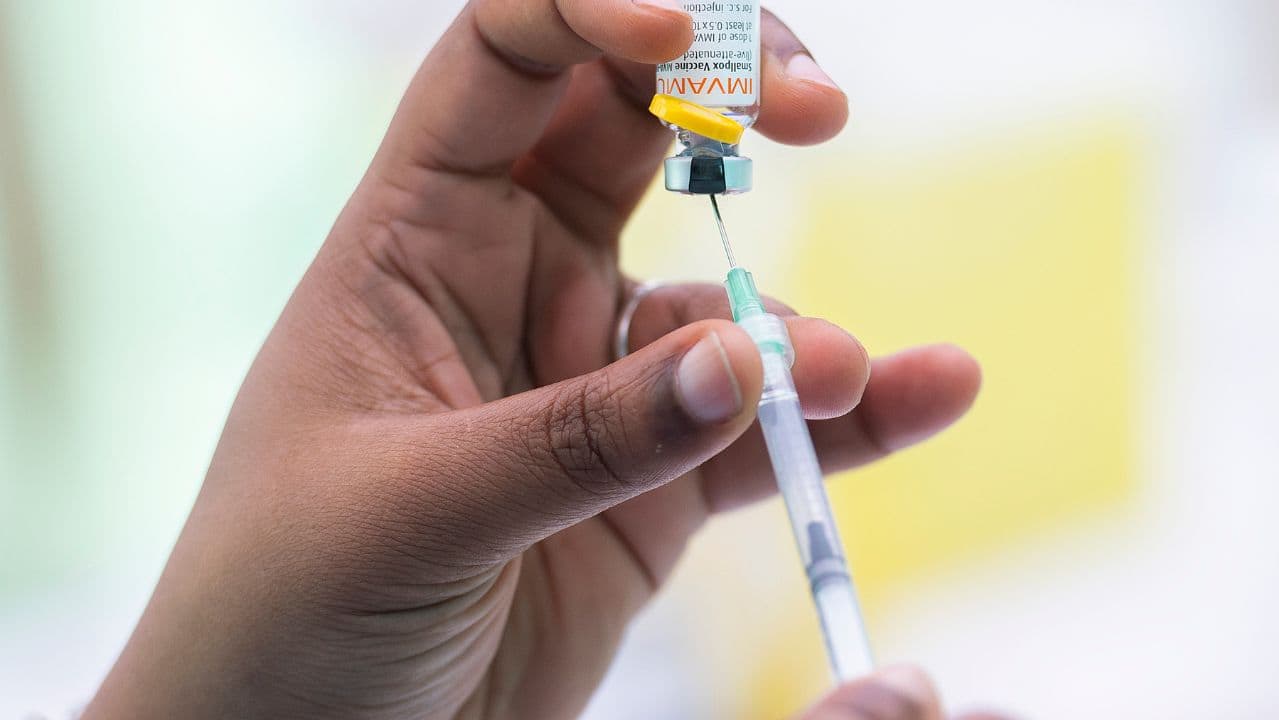[ad_1]
It is possible to eliminate the monkeypox outbreak in Europe, World Health Organization officials said on Tuesday, highlighting evidence that case counts are slowing in a handful of countries.
There are encouraging signs of a sustained week-on-week decline in the onset of cases in many European countries, including France, Germany, Portugal, Spain and Britain, as well as a slowdown in some parts of the United States, despite scarce vaccine supplies.
“We believe we can eliminate sustained human-to-human transmission of monkeypox in the [European] region,” said WHO Regional Director for Europe Hans Kluge. “To move towards elimination … we need to urgently step up our efforts.”
The rollout of Bavarian Nordic’s monkeypox vaccine has been affected by limited supply of the shot, which is also approved to prevent smallpox, although regulators are taking steps to stretch existing stocks.
U.S., European Union and British regulators have backed changing the way the vaccine is administered by injecting a smaller amount of the shot intradermally, which increases by fivefold the doses that can be used from one vial.
In addition to the vaccine supply crunch, given the time it takes to deploy the vaccine and for it to take effect, the significant factors behind the slowdown appear to be earlier detection, which leads to patients isolating themselves sooner, and behavioural changes, Catherine Smallwood, senior emergency officer and monkeypox incident manager at WHO Europe said in a press briefing.
As Canada hits more than 1,000 cases of Monkeypox, public health officials say we have enough vaccine supply. In the U.S., health officials are giving smaller doses of the monkeypox vaccine to stretch limited supplies.
“We do have some pretty good anecdotal evidence that people — particularly men who have sex with men who are in particular risk groups — are much more informed about the disease.”
More than 47,600 confirmed cases in 90 countries where monkeypox is not endemic have been reported since early May. WHO has declared the outbreak a global health emergency.
Canada’s Chief Public Health Officer Dr. Theresa Tam said on Aug. 12 that Canada has so far deployed 99,000 vaccines to provinces and territories. She said that it was “too soon to tell” if cases were slowing in Canada, although there may be “some early signs” that they are not increasing at the same rate as during the beginning of the outbreak.
There are now 1,228 monkeypox cases across Canada, with the bulk of them in Ontario and Quebec, and Tam said Canada will soon move to testing wastewater in different regions of the country to better track the spread of the disease, building off the infrastructure developed to monitor COVID-19 during the pandemic.
COVID-19, polio cases expected to rise
Meanwhile, cases of COVID-19 and other respiratory viruses are also expected to see an uptick this autumn and winter, as is typically the case in the cooler months, WHO officials said.
The preventive measures that kept seasonal flu at bay in 2021 and 2020, for instance, are no longer in place — so it may not be a typical flu season this year, Smallwood said.
Separately, polio, a deadly disease that used to paralyze tens of thousands of children every year, is spreading in London, New York and Jerusalem for the first time in decades, spurring catch-up vaccination campaigns.
The cases appear to be linked to so-called vaccine-derived polio, which rarely stems from the use of an oral polio vaccine containing weakened live virus.
After children are vaccinated, they shed virus in their feces for a few weeks. In under-vaccinated communities, this can lead to a spread of the disease, which may mutate back to a harmful version of the virus.
While countries like Britain and the United States no longer use this live vaccine, others do — particularly to stop outbreaks — which allows for polio to spread globally.
The evidence suggests the polio virus detected in all three locations appears to be genetically linked, said WHO Europe’s vaccination expert, Siddhartha Datta.
But what remains to be investigated is whether there are links around the cases, he said.
[ad_2]
Source link




